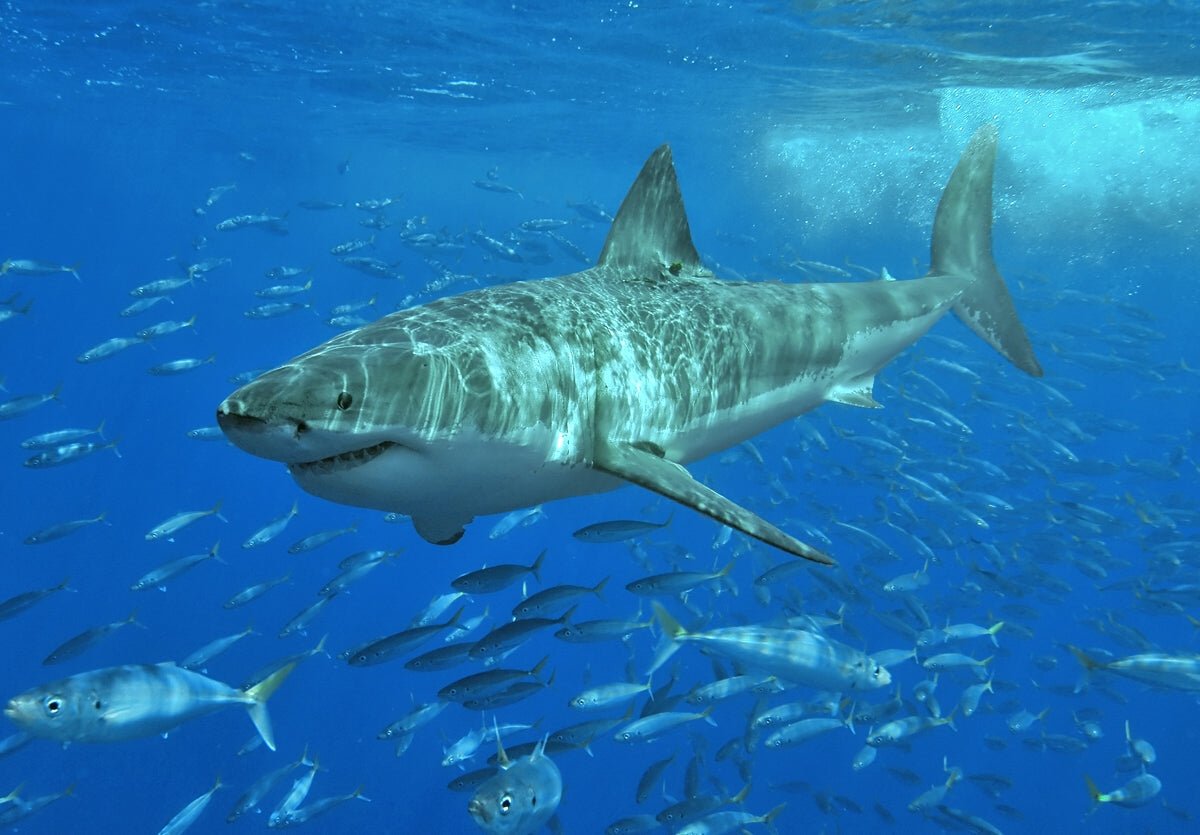Pourquoi c'est le meilleur anti-stress
La pêche est depuis longtemps reconnue pour sa capacité à procurer détente, sérénité et un sentiment d'évasion face aux pressions de la vie quotidienne. Plus qu'une simple activité récréative, la pêche offre de nombreux bienfaits psychologiques, notamment dans les domaines de la réduction du stress et de la pleine conscience. Mais pourquoi la pêche est-elle si efficace pour calmer l'esprit ? Cet article se penche sur la science derrière l'impact de la pêche sur la santé mentale, en explorant comment elle favorise la pleine conscience, réduit le stress et améliore le bien-être général.
1. Le lien entre la nature et la réduction du stress
L’une des principales raisons pour lesquelles la pêche est un moyen efficace de soulager le stress est le simple fait qu’elle se déroule dans la nature. De nombreuses études ont montré que passer du temps à l’extérieur a un impact profond sur la santé mentale. En 2010, une étude publiée dans le Journal of Environmental Psychology a révélé que même de courtes périodes passées dans des environnements naturels peuvent réduire considérablement les sentiments de stress, d’anxiété et de dépression [1] .
Être entouré par la nature active le système nerveux parasympathique, qui aide à calmer le corps et l'esprit. Ce système est responsable de la réponse « repos et digestion » du corps, qui contrecarre le mécanisme de « lutte ou fuite » activé par le stress [2] . Le bruit de l'eau qui clapote sur le rivage, le bruissement des arbres et le doux bourdonnement de la faune, qui sont tous courants dans les environnements de pêche, peuvent apaiser le système nerveux, entraînant une réduction des niveaux de cortisol (l'hormone du stress).
2. La pleine conscience dans la pêche : être présent dans l'instant présent
La pleine conscience, la pratique qui consiste à être pleinement présent et engagé dans le moment présent, est un outil puissant pour réduire le stress. La pêche favorise naturellement la pleine conscience, car elle nécessite de se concentrer sur la tâche à accomplir, qu'il s'agisse de lancer une ligne, de surveiller un flotteur ou de ramener soigneusement un poisson. Ces mouvements simples et répétitifs aident le pêcheur à ancrer le pêcheur dans le moment présent, en détournant son attention des soucis ou des facteurs de stress.
Des recherches ont montré que la pleine conscience peut réduire considérablement le stress, l’anxiété et les symptômes de la dépression [3] . En fait, une étude de 2011 publiée dans Health Psychology a démontré que les personnes qui pratiquaient des techniques de réduction du stress basées sur la pleine conscience (MBSR) ressentaient des niveaux de détresse psychologique plus faibles et une meilleure qualité de vie [4] . La pêche encourage cette même pleine conscience en créant un environnement où les distractions sont minimisées et où le pêcheur est pleinement absorbé par le processus de pêche.
De plus, la pêche peut induire un « état de flow », un état psychologique dans lequel une personne est complètement immergée dans une activité au point de perdre la notion du temps. Selon le psychologue Mihaly Csikszentmihalyi, les expériences de flow entraînent une augmentation du bonheur, une diminution de l'anxiété et un sentiment d'accomplissement [5] . La nature rythmique du lancer et de l'attente d'une touche est une activité idéale pour atteindre le flow, contribuant ainsi aux propriétés anti-stress de la pêche.
3. La pêche comme forme de méditation
La pêche peut être comparée à une forme de méditation active. Tout comme les pratiques de méditation traditionnelles, la pêche implique des actions répétitives et un environnement calme, qui permettent à l'esprit de ralentir et d'entrer dans un état méditatif. Cette « méditation active » offre des avantages similaires à la méditation assise, comme la réduction de l'anxiété, l'amélioration de l'humeur et le renforcement de la clarté cognitive.
En 2018, des chercheurs de la Harvard Medical School ont découvert que la méditation de pleine conscience entraînait une réduction mesurable du stress et une meilleure régulation émotionnelle [6] . Alors que la méditation traditionnelle consiste à rester assis et à se concentrer sur la respiration, la pêche engage le corps et l'esprit dans une activité ciblée, ce qui peut être encore plus attrayant pour ceux qui ont du mal avec des formes de méditation plus sédentaires.
La pratique de la pêche permet également de passer de longues périodes de solitude ou de compagnie tranquille, ce qui favorise l’introspection. De nombreux pêcheurs rapportent que la pêche offre l’occasion de réfléchir aux défis personnels, de recadrer les pensées négatives et de gérer les émotions sans les distractions de la vie quotidienne.
4. La pêche et les effets thérapeutiques du « Blue Mind »
Le concept de « Blue Mind », inventé par le biologiste marin Dr Wallace J. Nichols, fait référence à l’effet calmant de l’eau sur le cerveau humain. Nichols soutient qu’être à proximité, sur ou dans l’eau induit un état méditatif modéré qui nous rend plus heureux, plus détendus et même plus créatifs [7] . Cette idée est appuyée par des recherches scientifiques montrant que la proximité de l’eau réduit les niveaux de cortisol, abaisse la tension artérielle et augmente la sérotonine, la substance chimique du cerveau qui nous fait nous sentir bien.
Pour les pêcheurs, pêcher sur un lac, une rivière ou un océan n’offre pas seulement un magnifique décor : cela permet d’accéder à cet état d’esprit « bleu », créant un sentiment de paix et de bien-être. Il a été démontré que les environnements aquatiques, en particulier, augmentent la production d’ondes alpha dans le cerveau, qui sont associées à un état mental détendu mais alerte [8] . Ce calme mental, associé à l’activité physique douce de la pêche, en fait une activité idéale pour soulager le stress.
5. Les bienfaits sociaux et émotionnels de la pêche
Si la pêche peut être une activité solitaire, elle offre également des possibilités de connexion sociale. Que ce soit avec des amis ou en participant à un club de pêche local, l’expérience partagée de la pêche peut favoriser les liens sociaux et fournir un soutien émotionnel. La socialisation en elle-même est un moyen bien documenté de soulager le stress ; dans une étude de 2015, les chercheurs ont découvert que le soutien social joue un rôle important dans la réduction des niveaux de stress et l’amélioration de la santé mentale [9] .
De plus, attraper des poissons, même de petite taille, procure un sentiment d’accomplissement qui renforce l’estime de soi et améliore l’humeur. Le processus d’apprentissage, d’amélioration des compétences et de capture réussie d’un poisson offre un renforcement positif, qui peut aider à contrer les sentiments d’impuissance ou de frustration qui accompagnent souvent le stress. Ce sentiment d’accomplissement, aussi minime soit-il, libère de la dopamine, un neurotransmetteur associé au plaisir et à la récompense [10] .
Conclusion
La pêche est bien plus qu’un simple passe-temps : c’est une activité profondément thérapeutique qui procure de nombreux bienfaits psychologiques. En favorisant la pleine conscience et la méditation ou en profitant des effets apaisants de la nature et de l’eau, la pêche aide à réduire le stress, à améliorer la clarté mentale et à améliorer le bien-être émotionnel général. Qu’elle soit pratiquée seul ou avec des amis, sur un lac calme ou le long d’une rivière animée, la pêche reste l’un des moyens les plus efficaces et les plus agréables de soulager le stress dans nos vies modernes et trépidantes.
En comprenant et en exploitant les bienfaits psychologiques de la pêche, les pêcheurs peuvent non seulement améliorer leurs compétences, mais également prendre soin de leur santé mentale, créant ainsi une connexion plus profonde et plus épanouissante avec la nature et avec eux-mêmes.
Citations
- [1] Berman, MG, Jonides, J., & Kaplan, S. (2008). Les bienfaits cognitifs de l'interaction avec la nature. Psychological Science , 19(12), 1207-1212.
- [2] Ulrich, RS, Simons, RF, et al. (1991). Récupération du stress lors d'une exposition à des environnements naturels et urbains. Journal of Environmental Psychology , 11(3), 201-230.
- [3] Hofmann, SG, et al. (2010). L'effet de la thérapie basée sur la pleine conscience sur l'anxiété et la dépression : une revue méta-analytique. Journal of Consulting and Clinical Psychology , 78(2), 169-183.
- [4] Carlson, LE et Brown, KW (2005). Validation de l'échelle de conscience de l'attention consciente dans une population atteinte de cancer. Journal of Psychosomatic Research , 58(1), 29-33.
- [5] Csikszentmihalyi, M. (1990). Flow : la psychologie de l'expérience optimale . Harper & Row.
- [6] Goyal, M., Singh, S., et al. (2014). Programmes de méditation pour le stress psychologique et le bien-être : revue systématique et méta-analyse. JAMA Internal Medicine , 174(3), 357-368.
- [7] Nichols, WJ (2014). Esprit bleu . Little, Brown et compagnie.
- [8] Valtchanov, D., et al. (2010). Effets réparateurs des environnements de nature virtuelle. Cyberpsychologie, comportement et réseautage social , 13(5), 503-512.
- [9] Holt-Lunstad, J., et al. (2010). Relations sociales et risque de mortalité : une revue méta-analytique. PLOS Medicine , 7(7), e1000316.
- [10] Schultz, W. (2002). Devenir formel avec la dopamine et la récompense. Neuron , 36(2), 241-263.








